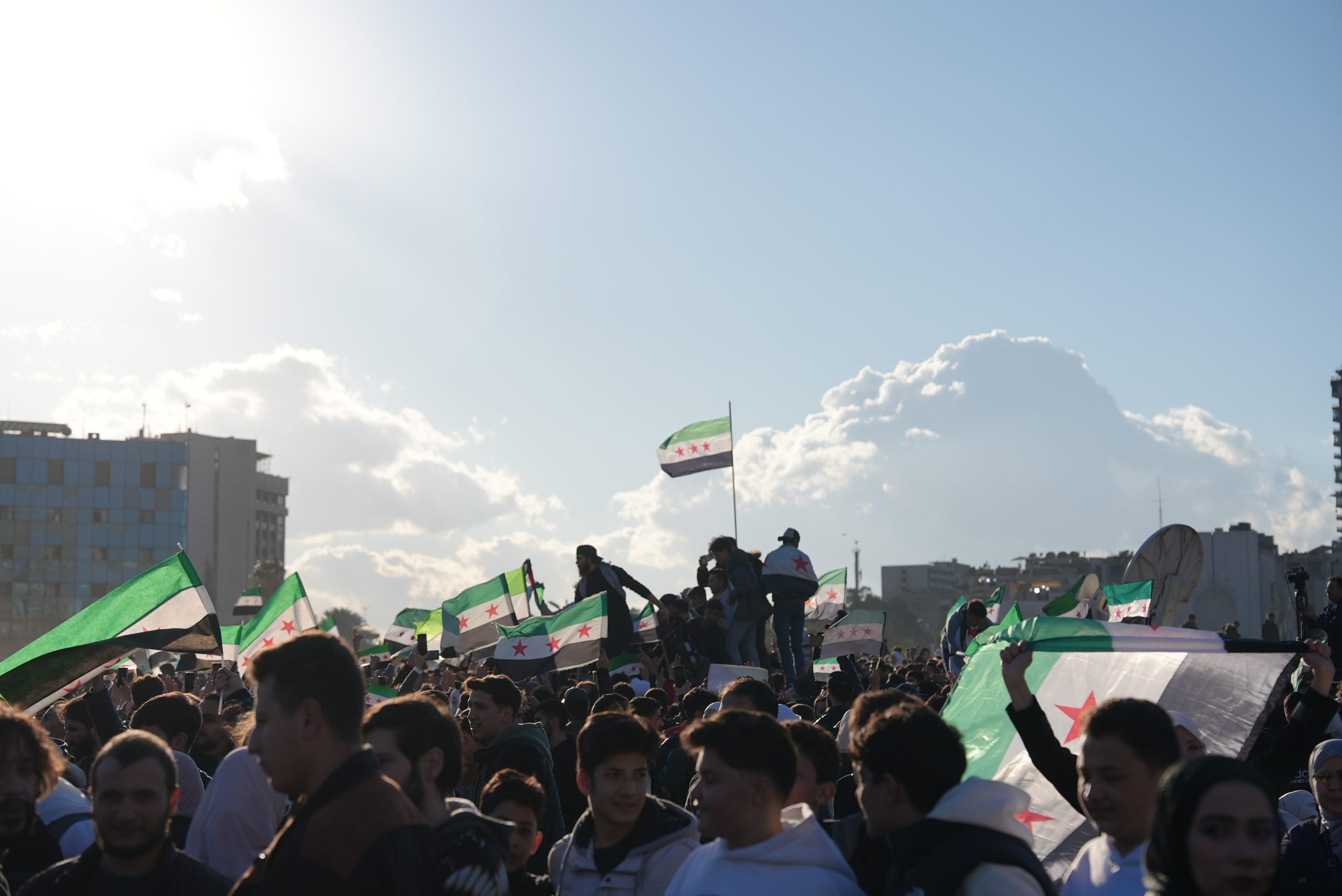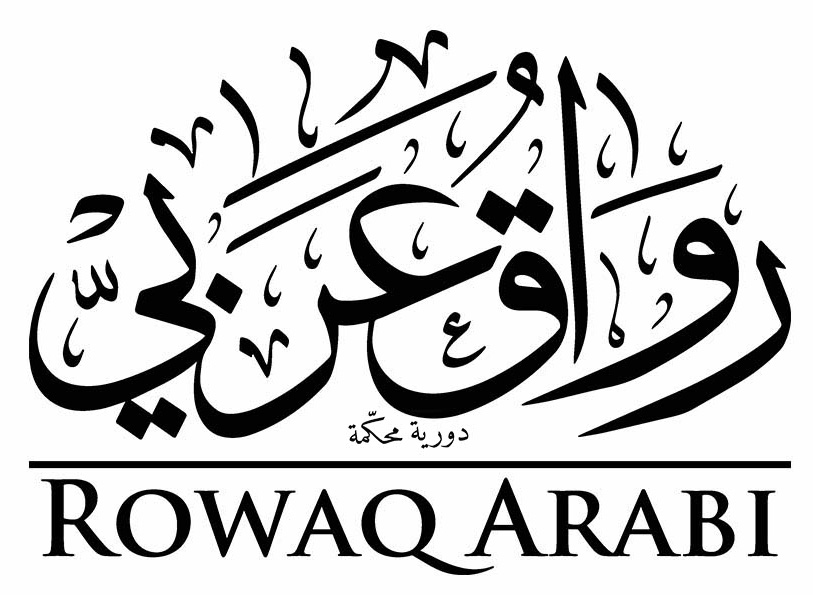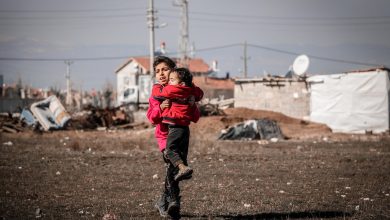Views: Revisiting Tunisia’s Failed Transitional Justice with an Eye on Syria

Citation: Guellali, Amna. 2025. “Views: Revisiting Tunisia’s Failed Transitional Justice with
an Eye on Syria.” Rowaq Arabi 30 (1): 24-34. https://doi.org/10.53833/JQID8384.
The fall of the Bashar al-Assad regime on 8 December 2024 will be remembered as the end of one of the most brutal dictatorships in modern history. It has helped to unveil authoritarian and repressive systems – built upon torture, forced disappearances, and iron-fist tactics – as fragile giants capable of collapsing within days. With Assad’s ouster, Syrians have an opportunity to start anew and rebuild a society torn apart by decades of dictatorship, sectarian divisions, foreign interventions, and a devastating civil war that claimed the lives of hundreds of thousands and displaced millions, leaving the country fragmented under the control of dozens of armed militias[1].
As in any post-authoritarian transition, Syrians must face a number of important questions concerning the future. Foremost among them concerns how to establish a new system of governance without forgetting about the atrocities committed in the past. This would entail establishing the truth about the fate of the hundreds of thousands of disappeared and other victims of Syria’s half-century long dictatorship. Under international law this process is referred to as transitional justice, which seeks to address past human rights violations with a view to preventing similar violations in the future.
This article provides a brief on the Tunisian experience of transitional justice, which began in 2011 after the fall of the then-president Zine El-Abidine Ben Ali. The purpose is not to provide lessons or dictate how Syria’s transitional justice should unfold, but rather, to examine the elements essential to a successful transitional justice system—elements that were mismanaged in Tunisia, ultimately leading to the system’s collapse.
While Syria remains unstable and politically volatile, with no clear direction from its new rulers—an armed group with radical Islamist leanings—it is urgent for Syrians to begin exploring possible forms of a transitional justice system.[2] Such a process will be crucial not only to examine the crimes of the past, but also to build confidence in the new interim authorities and test their willingness to chart a peaceful, inclusive and accountable governance for the country.
While Hay’at Tahrir al-Sham (HTS) and its leader Ahmed al-Sharaa did not refer initially to the concept of Transitional Justice (TJ), it has become central to their discourse since Sharaa’s inauguration speech as president.[3] The concept was also integrated in the final document of the one-day National Dialogue Conference, organised by the interim authorities, which took place on 25 February 2025.[4] Similarly, the Minister of Foreign Affairs announced, during the UN Human Rights Council’s fifty-eighth session, the creation of a committee on the disappeared.[5] The minister further expressed the government’s willingness to investigate past crimes, but only those committed by Assad. As of now, there has been no clear and consistent transitional justice discourse and no concrete steps taken to preserve documents and sites related to human rights violations.[6] This has led many observers to fear that critical issues such as accountability, truth-seeking, and reparations for victims may be sidelined in the caretaker government’s agenda.[7] This file is rendered even more complex by recent events involving massacres of civilians by government forces in the coastal Latakia area where there is an Alawite majority and where pro-Assad forces are present, which sparked outrage and prompted interim president Sharaa to announce the creation of a committee to investigate the crimes.[8]
Experiences from other countries in transition often demonstrate that the first months of a post-conflict period are pivotal for reform. If a reform agenda is not set quickly enough, the opportunity for establishing a rights-based governance system will likely be lost. Tunisia’s transitional justice process was the most advanced in the Arab region, as it lasted almost ten years and involved several institutions. Despite the time lapse of Tunisia’s transitional justice experience and the significant advances it made during those years, its demise after the self-coup, led by President Kais Saied in July 2021, is a sobering example of how this process is fraught with difficulties, even in the most favourable environments.
In Syria, the scale of atrocities and the complexity of the political landscape present daunting challenges. While human rights violations were widespread in Tunisia, the horrors of Syria’s torture dungeons are unparalleled.[9] Other challenges are the fact that those currently holding power include former warlords and armed groups with a history of human rights abuses.[10] Many of them are unlikely to support a transitional justice process that could expose their own crimes.
Another key challenge is the fragmentation of paramilitary forces. Unlike Tunisia, where the transitional justice process dealt primarily with a centralised state apparatus, Syria’s security sector is deeply fractured. Different militias control various parts of the country, and each has its own system of governance and foreign allegiance. Foreign interference into Syrian affairs, exemplified by Israel’s incursion into Syria and threats to its stability, also exemplify the potential for a derailing of any efforts at reform. Implementing transitional justice across such a fragmented landscape will be nearly impossible without a central authority capable of bringing together the various communities around a reform project.
The Rise and Demise of Transitional Justice in Tunisia
The Tunisian transitional justice process, which began in 2011 after the overthrow of President Zine El-Abidine Ben Ali, was considered as one of the best practices of post-authoritarian transitions in the Arab region. At its core was the Truth and Dignity Commission (TDC), which was set up in 2014 to investigate violations of human rights since Tunisia’s independence and recommend measures to ensure that such violations do not occur again.[11] Its mandate extended to investigating a broad spectrum of crimes, including political repression, economic corruption, and the systematic targeting of marginalised communities.
One of the landmark steps undertaken by the TDC were public hearings, which allowed survivors of torture, unlawful detention, and other abuses to share their stories. Broadcast nationally, these testimonies aimed to foster a collective reckoning with the past and provided victims with a long-denied opportunity to be heard after decades of erasure.[12]
Tunisia’s transitional justice process hinged not only on the establishment of the Truth and Dignity Commission (TDC) but also on the creation of Specialised Criminal Chambers (SCCs) within the judiciary. The SCCs were designed to handle cases referred by the TDC, focusing on serious human rights violations such as torture, enforced disappearance, and extrajudicial killing. The two processes—truth-telling, led by the TDC, and accountability, overseen by the SCCs—were intended to be integrated and mutually reinforcing.
The TDC’s final report, published in 2019, sought to provide a comprehensive account of decades of abuses under Tunisia’s authoritarian regimes.[13] The report detailed widespread human rights violations, including systematic torture, politically motivated detentions, and corruption that had entrenched socioeconomic inequality. It also included key proposals to dismantle the systemic foundations of authoritarianism and prevent its resurgence such as institutional reforms to ensure judicial independence, the restructuring of security forces to prevent future abuses, and economic measures to address the marginalisation of underdeveloped regions.
Despite the significance of these recommendations, and the promising referral by the TDC of 173 cases to the SCC for trial,[14] successive governments obstructed transitional justice efforts and stalled its progress long before President Kais Saied dealt the final blow with his 2021 coup. The collapse of Tunisia’s transitional justice process is epitomised by the fate of Sihem Bensedrine, the former president of the TDC. Once a prominent advocate for justice and accountability, and a symbol of resistance against the Ben Ali regime, Bensedrine was imprisoned from August 2024 to February 2025, under dubious charges of public fund embezzlement.[15]
One of the key strengths of Tunisia’s transitional justice process was the active involvement of civil society organisations in shaping, developing, and overseeing the system. From its inception to the conclusion of its mandate, civil society worked to shield the TDC from efforts to restrict its work and resisted attempts to alter its mandate or obstruct the SCC from prosecuting human rights violations. Although this decade-long struggle against counterrevolutionary forces allowed the TJ process to advance, ultimately it did not succeed in securing its full protection.
Pitfalls of the Tunisian Transitional Justice Process
The Tunisian transitional justice experience, initially hailed as a success, ultimately fell short in several critical areas, opening the door for a counter-revolutionary narrative. Perceived lack of independence of the TDC, a lack of meaningful reform in key sectors, and a hostile political environment undermined its objectives.
Lack of independence and hostile political environment
The legitimacy and effectiveness of transitional justice mechanisms depend on procedural safeguards that ensure independence, impartiality, and inclusivity. In Tunisia, Organic Law No. 53 on Establishing and Organising Transitional Justice, adopted by the parliament in 2013, was the cornerstone for a structured transitional justice process, following an initial phase of fragmented and uncoordinated efforts. The law emerged from extensive public consultations, involving civil society organisations, victims’ groups, and legal experts, with institutional backing from international organisations and NGOs.[16]
While the process leading to the drafting of the law was mainly inclusive, the procedural arrangement for selecting the Truth and Dignity Commission raised concerns. It should be noted that the TDC law and the TJ system was enacted in December 2013, when Tunisia was in a political deadlock and in the wake of a political crisis that deeply divided the country. The crisis pitted two major political forces against each other: The Troika government, led by the Islamist party Ennahda, which was widely criticised and accused of being complicit in political assassinations,[17] and the secularist opposition, including the newly founded Nidaa Tounes party, a coalition of former regime figures, leftists, and syndicalist leaders.
The commissioners of the TDC were selected through a parliamentary vote by the National Constituent Assembly (NCA), a process that was then perceived as highly politicised given the reign of partisan politics in the parliamentary process and the dominance of ideological divisions over principles. Therefore, public suspicion of the TDC’s neutrality was damped from the beginning.[18]
These perceptions persisted throughout the TDC’s four-year mandate, creating a hostile environment for its mission to investigate human rights violations since Tunisia’s independence. The media played a decisive role in shaping public perceptions of the TDC, often propagating hate speech against it and trying to sabotage it. Instead of focusing on the institution’s efforts to address historical injustices, the media fixated on the supposed political allegiances of its commissioners, particularly its president, Sihem Ben Sedrine, whose prominent role in opposing the former regime made her a favourite target for the counter-revolutionary narrative.
Some media outlets framed the TDC as a tool of Ennahda, tapping into the broader societal fear of Islamist dominance in the state. This narrative was reinforced by security syndicates and figures from the former regime, who sought to undermine the TDC and argued that it was a threat to the nation’s security and stability. They used the media to amplify procedural missteps, exaggerate internal conflicts, and attack commission members.[19] As a result, the public debate about transitional justice shifted away from the substance of the TDC’s findings—exposing decades of state repression—to a focus on perceived partisanship and political bias.[20]
The hostile climate extended beyond rhetoric to active obstruction. From 2014 to 2019, the TDC faced an uphill struggle to continue its work in the face of constant attempts to undermine its findings and entrenched resistance within the state and security apparatus. In 2014, Beji Caid Essebsi, who served under both Bourguiba and the Ben Ali regimes, won the presidential elections. His party, Nidaa Tounes, formed a coalition government with Ennahda. Essebsi publicly criticised the transitional justice process, claiming it was divisive and counterproductive. Nidaa Tounes included many figures linked to the former regime, while Ennahda, despite its past victimisation, prioritised political pragmatism over full accountability. This period became synonymous with ‘consensus politics’—initially lauded as a stabilising mechanism amid political polarisation but ultimately creating the conditions for a stalled reform agenda.[21] The coalition, which began as a strategy to avert unrest following the political assassinations and terrorism that rocked the country, ended up derailing meaningful institutional reforms. During this period, the commission’s investigations were often met with a lack of cooperation from state authorities. Hundreds of letters were sent by the IVD to the Ministry of the Interior, requesting access to the archives of the political police and the names of perpetrators. These letters largely remained unanswered or were returned with scant information.[22]
Tunisia’s transitional justice process highlights the need for a political environment that shields truth-telling mechanisms from interference. While political dynamics inevitably shift, truth commissions must be designed with strong safeguards to preserve their independence and credibility. Without these protections, transitional justice efforts risk being undermined, as seen in Tunisia.
For Syria, a well-structured, internationally supported commission could serve as a crucial first step toward truth, accountability, and long-term reconciliation. While Syrians must take the lead in shaping such a mechanism and securing its recognition by the caretaker government, it is essential to ensure strong safeguards and robust civil society involvement to protect it from inevitable attempts at obstruction. It is also important for such a commission or any mechanism that will emerge to have the assistance and support of the several international mechanisms instituted by the UN to foster accountability and reporting on Syria.
Failure to reform the security sector
How can states undergoing the transition from authoritarianism to democracy deal with inherited state personnel complicit with abuses of prior regimes? Failure to acknowledge the problem of the inherited personnel, or an inability to effectively address it, may create considerable obstacles for the prospects for democratization. Roman David, Lustration and transitional justice, September 2011.[23]
One of the most glaring problems in Tunisia’s transitional justice process was the lack of meaningful reform within the security sector. Security forces from the Ministry of Interior, implicated in widespread abuses under Ben Ali, remained largely untouched by transitional justice mechanisms.[24]
International organisations, human rights groups, and legal scholars consider vetting as a cornerstone of transitional justice efforts in societies emerging from authoritarian rule.[25] Such processes aim to remove individuals implicated in past abuses while ensuring that public office is held by those committed to democratic values and human rights. However, the outcomes of vetting efforts vary significantly across contexts. Iraq’s de-Baathification process, for example, purged thousands of Baath Party members but exacerbated societal divisions and instability by alienating large segments of the population.[26]
In Tunisia, early attempts at reform were piecemeal and poorly implemented. On 7 March 2012, the Ministry of Interior dissolved the Directorate for State Security (DSS), or the ‘political police’ widely believed to have spearheaded repression under Ben Ali. However, it was unclear whether DSS personnel were dismissed or simply reassigned, leaving the public sceptical about the ministry’s commitment to change. Additionally, Ferhat Rahji, Minister of Interior from January to March 2011, forced forty-two senior Internal Security Forces (ISF) officials into early retirement. While this purge was partial, it froze the activities of several key departments, including the General Directorate of Special Affairs, which was critical for intelligence gathering.
Other measures compounded the problem of the haphazard and fragmented nature of the security sector reform in Tunisia. The dissolution of the police’s internal affairs department, known as the Inspection Supérieure de la Police Nationale or ‘the police’s police’, removed an essential oversight mechanism. Conversely, nearly 2,200 dismissed agents and senior officers were reintegrated into the ministry’s ranks, many of whom had been removed under Ben Ali, without any form of review of their conduct under the former regime. This contradictory approach to personnel management created confusion and further eroded public trust.[27]
In the early months of the transition, civil society was vibrant in its advocacy for security sector reform. Security syndicates emerged, enabled by Tunisia’s newfound freedoms, and called for the creation of a ‘republican police’. This slogan, initially a rallying cry for reform, was co-opted to oppose political agendas within the security apparatus, and to throw a showdown with Ennahda ministers, accused of attempts to impose their stranglehold on the Ministry of Interior. The momentum for reform further diminished as these syndicates shifted their focus to protecting the interests of security forces, often at the expense of accountability.
The political climate further derailed security sector reform efforts. Following the 2013 assassinations by jihadists affiliated with the Ansar Al-Sharia group[28] of two political leftist leaders (Chokri Belaid, the leader of the Democratic Patriots’ Movement, and Mohamed Brahmi, the founder of the People’s Movement party) and the 2015 terrorist attacks on the Bardo Museum and the coastal city of Sousse, public opinion shifted from demanding reform to prioritising security and stability. This shift emboldened security forces to resist transparency and accountability. Between 2013 and 2017, legislative attempts to pass a draft law that ‘immunised’ security forces from accountability surfaced repeatedly, reflecting a broader retrenchment of the security apparatus.[29] This failure to reform not only perpetuated impunity but also reinforced the perception that Tunisia’s security sector remained a continuation of the old regime rather than a pillar of democratic governance.
In Syria, the vetting of security forces presents an even more daunting challenge. In December 2024, following the fall of al-Assad’s regime, Syria’s transitional government initiated a restructuring of the nation’s security apparatus. This process involved dissolving existing security agencies, including the General Intelligence Directorate, disbanding thousands of security and military personnel, and integrating various armed factions into a unified national army under the Ministry of Defence. However, the abrupt disbandment of entrenched security agencies and the unchecked integration of thousands of unvetted combatants carry a high risk of further instability. This danger materialised in March 2025, when pro-Assad insurgents launched coordinated attacks in the coastal regions, particularly in Latakia and Tartus governorates, resulting in the deaths of hundreds of civilians, primarily from the Alawite community, further inflaming sectarian tensions.[30]
Distorted judicial reform and flawed accountability
Reforming the judicial system and ensuring judicial independence from the executive branch are essential pillars of any post-authoritarian system. In Tunisia, as in many countries across the Arab region, the judiciary was a key instrument of dictatorship, used to impose a repressive grip on society. This was achieved by subjecting judges to pressure involving dismissals, forced removals, and other tactics designed to subjugate the judiciary to the executive’s authority.
Following the revolution, judicial reform became a top priority for civil society and began gaining traction within the political sphere. However, as with security sector reform, early decisions and missteps shaped the trajectory of the reform process, ultimately jeopardising its success. One of the most controversial early decisions occurred in May 2012, when then Minister of justice Noureddine Bhiri, from Ennahdha, which headed the governing coalition, summarily dismissed seventy-five judges under the pretext that they were involved in corruption and other serious misconduct. This action, executed without any form of due process, sparked outrage in Tunisia and was considered as the first attempt by Ennahda to impose its political agenda and control the judiciary.[31]
In addition, a critical component of judicial reform was the establishment of the High Council of the Judiciary (HJC) in 2016, as mandated by Tunisia’s 2014 Constitution. The HJC was intended to serve as a safeguard for judicial independence by overseeing judicial appointments, promotions, and disciplinary actions. However, the process of forming the HJC revealed deep structural and political flaws, especially the fact that the executive branch retained indirect influence over the council through budgetary control and its role in the disciplinary process.[32] A key concern with the law was the composition of the HJC. Only a minority of its forty-five members were judges elected by their peers. Other members are appointed by the executive or by the legal profession, giving the executive a significant influence over its functioning. It also includes as an ex officio member the general prosecutor of military justice, notorious for its submission to political volition.[33]
In addition to the haphazard and distorted nature of the judicial reform process, accountability efforts were undertaken in a similarly piecemeal and disordered way, with no real reform of the legal system. Several trials took place, including against former president Zine El-Abidine Ben Ali and members of the security forces involved in the killing of protesters during the revolution.[34] However, these trials were first conducted by military courts—institutions notorious for their lack of independence as they remain under the effective control of the executive power, despite a limited reform effort following the revolution.[35] This reliance on military courts for such pivotal cases severely undermined the legitimacy of the accountability process.
Moreover, these trials were conducted under outdated legal frameworks, using old laws and flawed judicial procedures inherited from the pre-revolutionary period.[36] The reliance on old legal frameworks meant that many of the perpetrators of state violence were either handed lenient sentences or benefited from legal loopholes, further eroding public trust in the accountability process.
Over time, Tunisia’s security sector, operating with impunity, regained its influence, ultimately enabling the resurgence of authoritarian structures within the state. The judiciary’s continued subordination to executive control ensured that accountability remained superficial, allowing security institutions to maintain their grip on power behind the scenes.
These dynamics culminated in the 2021 coup by President Kais Saied, who invoked emergency measures under Article 80 of the constitution to dissolve parliament, dismiss the prime minister, and assume unchecked executive control. Saied’s consolidation of power was made possible by the resilience of the security state, which provided the necessary institutional backing to dismantle Tunisia’s fragile democracy. Security forces played a key role in enforcing Saied’s measures, shutting down opposition, arresting critics, and ensuring that the judiciary—already weakened by years of executive influence—did not act as a check on authoritarian overreach.
In Syria, early missteps are also casting a shadow on the judicial system. The appointment of a justice minister, Shadi al-Waisi, who is a former HTS commander accused of executing a woman for adultery,[37] exemplifies this lack of attention to judicial standards. Such appointments send a clear signal that the government is not committed to genuine judicial reform but is instead entrenching the power of those who share its military and ideological background. Under these conditions, the judiciary risks becoming a tool for reinforcing impunity rather than dismantling it.
Conclusion
Tunisia’s experience underscores the importance of independent mechanisms and early reforms in key sectors, such as the security forces and the judiciary, in determining the success or failure of transitional justice. However, it also serves as a cautionary tale for what happens when transitional justice is not accompanied by structural change. The failure to conduct early vetting of security forces allowed old networks of power to persist, undermining the integrity of the process. Likewise, the judiciary was not deeply reformed to foster accountability. Moreover, the absence of political consensus and the re-emergence of counter-revolutionary forces weakened the implementation of key reforms, demonstrating that transitional justice cannot succeed in isolation; it must be embedded within a broader political transformation. A critical lesson from Tunisia’s experience is the enduring strength of civil society. Despite attempts to curtail transitional justice, Tunisia’s civil society remained a key force in mobilising and defending the process. In Syria, the extensive documentation of crimes committed by the former regime, painstakingly gathered by Syrian civil society, represents a foundational pillar for accountability, truth-telling, and institutional reform. This work must not only be safeguarded but also actively supported by the new authorities and the international community. Failing to do so would not only betray the sacrifices made but would also jeopardise any meaningful transition toward justice and stability.
The reality in Syria is that transitional justice is not a luxury but a necessity—a means to halt a bloody trajectory that could be reignited at any time. Whether Syria moves toward a rights-based governance system or falls again into authoritarianism and armed conflict will depend in large part on how transitional justice is pursued.
Acknowledgment: An AI tool was used by the author for copy-editing assistance.
[2] For background literature on transitional justice, see: Ruti G. Teitel, Transitional Justice (Oxford University Press, 2000); Ruti G. Teitel, Globalizing Transitional Justice: Essays for the New Millennium (Oxford University Press, 2014).
[3] Al-Arabi News, “Syrian President Ahmad Al-Sharaa’s Speech in His First Address to the People After Assuming the Presidency,” YouTube, January 2025, five minutes, accessed 14 March 2025, https://www.youtube.com/watch?v=rV3arMlfQz4.
[4] See National Dialogue Conference, final document, principle 9: “Achieving transitional justice through holding those responsible for crimes and violations accountable, reforming the judicial system, enacting the necessary legislation, and establishing appropriate mechanisms to ensure justice and restore rights.”
[5] Independent News Team, “’We are Now Establishing a High Commission to Address the Cases of Missing and Forcibly Disappeared Persons,’ Statement by Syrian Foreign Minister Asaad Al-Shaibani before the United Nations Human Rights Council,” 26 February 2025, accessed 14 March 2025, https://shorturl.at/FrQck.
[6] In a December 2024 interview, Ahmed al-Sharaa outlined a phased approach for Syria’s political transformation. However, specific plans detailing how transitional justice and accountability for past human rights violations would be addressed were notably absent. See MEMRI, “Hay’at Tahrir Al-Sham Leader Ahmed Al-Sharaa: New Constitution And Elections In Syria Will Take Years,” 29 December 2024, https://www.memri.org/reports/hayat-tahrir-al-sham-leader-ahmed-al-sharaa-new-constitution-and-elections-syria-will-take.
[7] CIHRS, “Ibn Rushd Salon: Can Syria Avoid Transitioning to Another Dictatorial Regime?,” 16 January 2025, https://cihrs.org/ibn-rushd-salon-can-syria-avoid-transitioning-to-another-dictatorial-regime/?lang=en.
[8] Syrian Network for Human Rights, “803 Individuals Extrajudicially Killed Between March 6-10, 2025,” 11 March 2025, https://snhr.org/blog/2025/03/11/803-individuals-extrajudicially-killed-between-march-6-10-2025/.
[9] Yezid Sayigh, “The Assads’ Houses of Death,” Diwan (Carnegie), 13 January 2023, accessed 14 March 2025, https://shorturl.at/eusac.
[10] Human Rights Watch, “Syria: Arrests, Torture by Armed Group,” 28 January 2019, https://www.hrw.org/news/2019/01/28/syria-arrests-torture-armed-group/.
[11] Organic Law No. 2013-53 of December 24, 2013, on the Establishment and Organization of Transitional Justice, accessed 14 March 2025, https://shorturl.at/7OQOB.
[12] Eric Goldstein, “Tunisia Casts a Light on its Bloody Past,” Human Rights Watch, 24 November 2016, accessed 14 March 2025, https://www.hrw.org/news/2016/11/24/tunisia-casts-light-its-bloody-past.
[13] Truth and Dignity Commission, “The Final Comprehensive Report Executive Summary,” May 2019, accessed 14 March 2025, http://www.ivd.tn/rapport/doc/TDC_executive_summary_report.pdf.
[14] Amnesty International, “Tunisia: Truth Commission Findings Must Lead to Justice for Thousands of Victims of Human Rights Violations,” 25 March 2019, accessed 14 March 2025, https://www.amnesty.org/en/latest/press-release/2019/03/tunisia-truth-commission-findings-must-lead-to-justice-for-thousands-of-victims-of-human-rights-violations/.
[15] For an explanation of the charges and their context, see Olfa Belhassine, “En Tunisie, le rapport ‘falsifié’ qui menace la justice transitionnelle,” 23 March 2023, accessed 14 March 2025, https://www.justiceinfo.net/fr/114205-en-tunisie-le-rapport-falsifie-qui-menace-la-justice-transitionnelle-html.html.
[16] International Center on Transitional Justice, “ICTJ Welcomes Tunisia’s Historic Transitional Justice Law,” 17 December 2013, accessed 14 March 2025, https://www.ictj.org/news/ictj-welcomes-tunisia%E2%80%99s-historic-transitional-justice-law.
[17] Rihab Boukhayatia, “Assassinats de Belaid et Brahmi: Autopsie d’une justice malade,” Nawaat, 11 February 2022, accessed 14 March 2025, https://nawaat.org/2022/02/11/assassinats-de-belaid-et-brahmi-autopsie-dune-justice-malade/.
[18] Rim El Gantri, “Tunisia in Transition; One Year After the Creation of the Truth and Dignity Commission,” International Center for Transitional Justice, September 2015, accessed 14 March 2025, https://www.ictj.org/sites/default/files/ICTJ-Briefing-Tunisia-TJLaw-2015.pdf.
[19] Laryssa Chomiak, “Tunisia Case Study, Comparative Study of Transitional Justice in Africa,” Comparative Study of Transitional Justice in Africa, October 2018, accessed 14 March 2025, https://www.csvr.org.za/wp-content/uploads/2016/06/Tunisian-Case-Laryssa-Chomiak.pdf.
[20] For instance, in 2014, the IVD attempted to seize state archives from the presidential palace, a move fully supported by legal grounds. However, the presidential guard blocked the attempt, and the media framed it as an effort to manipulate the archives and hand them over to Ennahda and its allies, rather than an effort towards uncovering the truth about the state’s involvement in human rights violations. See Babnet, “The Secretary-General of the Presidential Security Union confirms that Sihem Bensedrine was prevented from taking the Presidency’s archives”, accessed 14 March 2025, https://www.babnet.net/rttdetail-97222.asp.
[21] Sharan Grewal and Shadi Hamid, “The Dark Side of Consensus in Tunisia: Lessons from 2015-2019,” Brookings, January 2020, https://www.brookings.edu/articles/the-dark-side-of-consensus-in-tunisia-lessons-from-2015-2019/.
[22] Human Rights Watch, “Politicians Dash Hopes for Justice in Tunisia,” 18 May 2018, https://www.hrw.org/news/2018/05/18/politicians-dash-hopes-justice-tunisia.
[23] Roman David, Lustration and Transitional Justice: Personnel Systems in the Czech Republic, Hungary, and Poland (University of Pennsylvania Press, 2011), accessed 14 March 2025, http://www.jstor.org/stable/j.ctt3fhbks.
[24] Haykel Ben Mahfoudh, “The Security Sector in Tunisia After the Uprising and in 2013,” Carnegie, accessed 14 March 2025, https://carnegie-production-assets.s3.amazonaws.com/static/files/The_Security_Sector_in_Tunisia_after_the_Revolution_and_in_2013.pdf.
[25] United Nations Office of the High Commissioner for Human Rights, “Rule-of-law Tools for Post-Conflict States; Vetting: an Operational Framework, United Nations,” 2006, accessed 14 March 2025, https://www.ohchr.org/sites/default/files/Documents/Publications/RuleoflawVettingen.pdf.
[26] Miranda Sissons and Abdulrazzaq Al-Saiedi, “A Bitter Legacy: Lessons of De-Baathification in Iraq,” International Center for Transitional Justice, March 2013, accessed 14 March 2025, https://www.ictj.org/sites/default/files/ICTJ-Report-Iraq-De-Baathification-2013-ENG.pdf.
[27] International Crisis Group, “Reform and Security Strategy in Tunisia,” accessed 14 March 2025, https://www.crisisgroup.org/sites/default/files/161-reform-and-security-strategy-in-tunisia.pdf.
[28] Tarek Amara, “Tunisia Sentences Four People to Death for 2013 Assassination of Politician,” Reuters, 27 March 2024, accessed 14 March 2025, https://www.reuters.com/world/africa/tunisia-sentences-4-death-2-life-prison-assassination-politician-2013-2024-03-27/.
[29] Yezid Sayigh, “Missed Opportunity: The Politics of Police Reform in Egypt and Tunisia,” Carnegie Middle East Center, 17 March 2015, https://carnegie-production-assets.s3.amazonaws.com/static/files/missed_opportunity.pdf.
[30] Syrian Network for Human Rights, “803 Individuals Extrajudicially Killed Between March 6-10, 2025,” 11 March 2025, accessed 14 March 2025, https://snhr.org/blog/2025/03/11/803-individuals-extrajudicially-killed-between-march-6-10-2025/.
[31] Human Rights Watch, “Tunisia: Mass Firings a Blow to Judicial Independence,” 29 October 2012, accessed 14 March 2025, https://www.hrw.org/news/2012/10/29/tunisia-mass-firings-blow-judicial-independence.
[32] Human Rights Watch, “Tunisia: Law Falls Short on Judicial Independence,” 2 June 2015, accessed 14 March 2025, https://www.hrw.org/news/2015/06/02/tunisia-law-falls-short-judicial-independence.
[33] Human Rights Watch, “Tunisia: Law Falls Short.”
[34] Human Rights Watch, “Tunisia: Q&A on the Trial of Ben Ali, Others for Killing Protesters,” 11 June 2012, accessed 14 March 2025, https://www.hrw.org/news/2012/06/11/tunisia-qa-trial-ben-ali-others-killing-protesters.
[35] Human Rights Watch, “Flawed Accountability, Shortcomings of Tunisia’s Trials for Killings during the Uprising,” 12 January 2015, accessed 14 March 2025, https://www.hrw.org/report/2015/01/12/flawed-accountability/shortcomings-tunisias-trials-killings-during-uprising.
[36] International Commission of Jurists, “Achieving Justice for Gross Human Rights Violations in Tunisia,” May 2018, https://www.icj.org/wp-content/uploads/2018/05/Tunisia-GRA-Baseline-Study-Publications-Reports-Thematic-reports-2017-ENG.pdf?utm_source=chatgpt.com.
[37] The New Arab, “New Syrian Justice Minister ‘Oversaw Execution of Women for Prostitution’ in 2015,” 5 January 2025, accessed 14 March 2025, https://www.newarab.com/news/syrian-minister-oversaw-execution-women-prostitution.
Read this post in: العربية





